
芥川龙之介 故事选集 英文原版 Murder in the Age of Enlightenment Essential Stories 经典文学作品
¥ 91 8.4折 ¥ 108 九五品
仅1件
送至北京市朝阳区
运费快递 ¥8.00
作者Ryunosuke Akutagawa
出版社Pushkin Press
ISBN9781805330295
出版时间2023-10
印刷时间2023-10
印数1千册
装帧平装
开本32开
纸张轻型纸
页数208页
字数1千字
定价108元
上书时间2024-12-27
评价398好评率 100%
- 在售商品 暂无
- 平均发货时间 36小时
- 好评率 100%
- 店主推荐
- 最新上架
商品详情
- 品相描述:九五品
- 商品描述
-
基本信息
Series:Pushkin Classics
Format:Paperback / softback 208 pages
Publisher:Pushkin Press
Imprint:Pushkin Press
ISBN:9781805330295
Published:26 Oct 2023
Weight:184g
Dimensions:128 x 198 x 18 (mm)
页面参数仅供参考,具体以实物为准
书籍简介
一位才华横溢、满怀怨恨的画家为了追求艺术的辉煌而堕落。在地狱的深处,一个强盗发现了一根蜘蛛丝正向他伸来。当一具尸体在一片与世隔绝的竹林中被发现时,一个关于暴力和欲望的万花筒般的故事开始展开。
这本由布莱恩-卡雷特尼克(BryanKaretnyk)生动翻译的作品集汇集了日本短篇小说大师的一系列重要作品。普希金出版社经典系列之一:从全球各地精选文学偶像的永恒故事。译者:布莱恩-卡雷丁 芥川龙之介是日本大正时期的文坛头领之一。
他被誉为日本短篇小说之父,在短暂的一生中创作了 150 多部短篇小说。芥川担心自己会遗传母亲的疯病,在生命的末尾阶段,他的精神健康问题日益恶化,35 岁时服用过量药物自杀身亡。
A talented and resentful painter falls in pursuit of artistic splendor. In the depths of hell, a robber discovers a spider's silk reaching for him. When a body is found in an isolated bamboo forest, a kaleidoscopic tale of violence and desire begins to unfold.
This collection, vividly translated by Bryan Karetnyk, brings together a series of important works by the master of the Japanese short story. Part of the Pushkin Press Classics series: a selection of timeless stories by literary icons from around the globe. Translated by Brian Carradine Ryunosuke Akutagawa was one of the leading literary figures of the Taisho period in Japan.
Known as the father of the Japanese short story, he wrote more than 150 short stories in his short life. Fearing that he would inherit his mother's madness, Akutagawa suffered from worsening mental health problems towards the end of his life and committed suicide by overdose at the age of 35.
作者简介
芥川龙之介生于东京,本姓新原,父经营牛奶业。生后8个月,母精神失常,乃送舅父芥川家为养子。芥川家为旧式封建家族。龙之介在中小学时代喜读江户文学、《西游记》《水浒传》等,也喜欢日本近代作家泉镜花、幸田露伴、夏目漱石、森鸥外的作品。1913年进入东京帝国大学英文科。学习期间与久米正雄、菊池宽等先后两次复刊《新思潮》,使文学新潮流进入文坛。其间,芥川发表短篇小说《罗生门》(1915)、《鼻》(1916)、《芋粥》(1916)、《手帕》(1916),确立起作家新星的地位。
Ryunosuke Akutagawa was born in Tokyo under the family name of Niihara, and his father ran a milk business. Eight months after his birth, his mother became insane and sent him to his uncle, the Akutagawa family, as an adopted son. The Akutagawa family was an old feudal family. Ryunosuke in primary and secondary school age like to read Edo literature, "Journey to the West", "Water Margin", etc., but also like modern Japanese writers Izumi Mirror Flower, Kouda Ruyan, Natsume Soseki, Mori Gouwai's works. 1913 into the Imperial University of Tokyo, the English Department. In 1913, he entered the English Department of Tokyo Imperial University, and during his study period, he and Masao Kume and Kan Kikuchi successively reprinted the New Thought on two occasions, which led to a new trend of literature in the literary world. During this period, Akutagawa published the short stories "Rashomon" (1915), "Nose" (1916), "Taro Porridge" (1916), and "Handkerchief" (1916), establishing himself as a rising star.
为你推荐
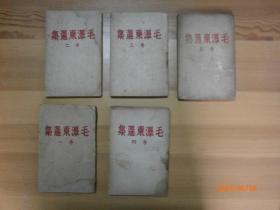
毛泽东选集(1944年晋察冀日报社初版本)名人旧藏
八品北京
¥1880000.00

林 彪 文 选 16开武汉版306页 1933年——1967年
八五品上海
¥1880.00

野叟曝言(中)
九品北京
¥6.00

英国原来是这样:英国社会与文化50主题(英汉对照读本)
八五品濮阳市
¥5.00

毛泽东手书选集
九品上海
¥40.00

台湾艺文印书馆版 王文进编辑《文禄堂书影》(4开线装)
全新北京
¥309.00

沉浮
九品深圳
¥25.00

书店的灯光
八五品汕头
¥19.00

特价绝版书 · 长安学丛书:黄永年卷 (16开 布面精装)自然旧
九五品北京
¥51.00
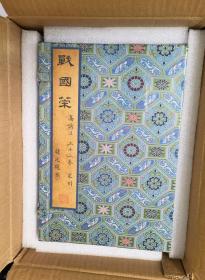
战国策,宋刻姚宏校正本战国策,典藏本,不到四折现货出售!文物出版社2022年一版一印!甲种,乙种,丙种都有!每种编号在详细介绍里!
全新开封
¥1860.00
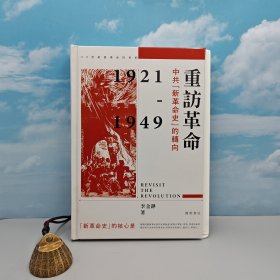
李金铮签名钤印+限量精装毛边本 · 香港中华书局 · 开明书店版《重访革命:中共“新革命史”的转向 1921-1949》(16开精装;一版一印)
全新北京
¥228.00

酉阳杂俎
八品长沙
¥30.00

楚天以南 (无签名)
全新南宁
¥18.00

中国历代状元文章精选
九五品保定
¥6.04

转折:1947年中共中央在陕北
全新济宁
¥9.70

中国禅诗鉴赏辞典
八五品东莞
¥228.00
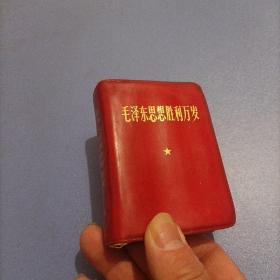
红宝书,毛泽东思想胜利万岁(128开)
七品萍乡
¥50.00

中国丸散膏丹制造秘典
八品高雄
¥3500.00
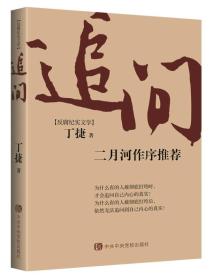
追问
八五品北京
¥17.00

寒门诡将:寒门逆袭手册 智斗权谋指南
全新衡水
¥13.20
— 没有更多了 —
微信扫码逛孔网
无需下载







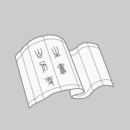

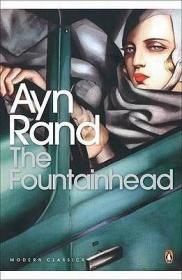











好
OK